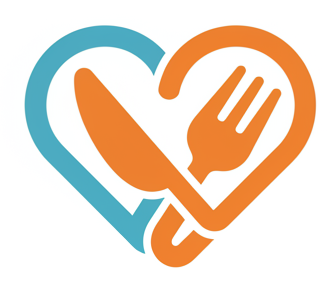Creating a personalized nutrition plan is key to achieving optimal health and wellness. It lets you tailor your diet to fit your unique needs and goals. This could be for weight management, better overall health, or to boost athletic performance.
A customized diet plan considers your dietary preferences, lifestyle, and health status. This ensures you get the right nutrients for your well-being.

Key Takeaways
- Customizing your diet helps you achieve optimal health and wellness
- Diet customization takes into account dietary preferences, lifestyle, and health status
- A personalized nutrition plan supports weight management, overall health, and athletic performance
- Customizing your diet ensures you’re getting the right nutrients for your overall well-being
- Diet customization is essential for a tailored approach to nutrition
Understanding the Importance of Dietary Personalization
Dieting doesn’t work the same for everyone. This is because our nutritional needs vary based on our genes, lifestyle, and health. A personalized nutrition plan considers these differences. It creates a diet that fits just right for each person.
A tailored diet plan offers many benefits. It can help with weight management, improve sports performance, and boost overall health. By knowing what each person needs, a personalized plan can suggest specific changes.
Why One-Size-Fits-All Diets Often Fail
Diets that fit everyone don’t work well because they ignore individual needs. They might be too strict, causing nutrient gaps and increasing disease risk. On the other hand, a personalized plan ensures you get the right nutrients for your health.
Benefits of Personalized Nutrition
Personalized nutrition brings many advantages. Some key benefits include:
- Improved weight management
- Enhanced athletic performance
- Better overall health
- Reduced risk of chronic diseases
The Science Behind Diet Customization
The science of customizing diets is intricate. It involves studying a person’s genes, lifestyle, and health. This knowledge helps create a diet that meets each person’s unique needs.
Assessing Your Current Dietary Habits
To make a custom diet regime, you need to know what you eat now. Track your food, including how much and how often you eat. This helps spot patterns that might slow you down. Keeping a food diary is a great way to track your habits and make better choices.
When looking at your diet, consider a few things:
- Macronutrient intake: track carbs, proteins, and fats you eat each day
- Meal frequency and timing: figure out how often and when you eat
- Portion sizes: pay attention to how much you’re eating
By examining your diet, you can find ways to improve. You might change your meal plan to include more whole foods or eat less processed stuff.
Creating a custom diet regime means understanding your unique needs. By looking at your current habits and making changes, you can reach your health goals.
Identifying Your Nutritional Goals and Requirements
To make a good meal plan, you need to know your nutritional goals. Think about your weight, health, athletic goals, and lifestyle. This helps you create a plan that fits your needs and improves your health.
A good meal plan looks at your daily calorie needs, what nutrients you need, and what foods you like. Setting goals that are realistic is key. For example, if you’re an athlete, your plan might focus on giving you energy and helping your muscles recover.
- Weight management: Are you trying to lose, gain, or keep your weight?
- Health-specific objectives: Do you have health issues that need special food?
- Athletic performance targets: Are you an athlete or do you exercise a lot?
- Lifestyle considerations: How do your daily habits, work, and preferences affect your eating?
By looking at these factors and making a meal plan, you can make sure your diet supports your health. This way, you can reach your nutritional goals and improve your well-being.
The Role of Your Genetic Profile in Diet Planning
Understanding your genetic profile is key to nutrition personalization. It helps you spot nutritional gaps and craft a diet that fits you perfectly. This can boost your weight management, athletic performance, and health.
Genetic data sheds light on how your body handles nutrients. For instance, some might be more sensitive to lactose or gluten. Knowing this lets you choose foods wisely, avoiding those that might upset your stomach.
Here are some perks of using genetic profiling for nutrition personalization:
- Improved weight management through tailored diet recommendations
- Enhanced athletic performance by optimizing nutrient intake
- Better overall health through targeted nutrition planning
Genetic profiling in diet planning means a diet that’s truly yours. It helps manage weight better, boosts athletic performance, and improves health and wellness.
| Genetic Profile | Nutrition Personalization | Benefits |
|---|---|---|
| Identify nutritional deficiencies | Tailored diet recommendations | Improved weight management |
| Analyze genetic data | Optimize nutrient intake | Enhanced athletic performance |
| Understand genetic factors | Targeted nutrition planning | Better overall health |
Customizing Your Diet: Creating a Personalized Nutrition Plan
Creating a diet plan tailored to you is key for good health. It’s about looking at your lifestyle, health, and what you like to eat. First, figuring out how many calories you need is important. This number is the base of your diet plan.
A good diet plan should have the right mix of carbs, protein, and fats. Finding the right balance for your body and how active you are is crucial. Choosing the right foods, like whole grains, lean proteins, and lots of fruits and veggies, is also important for your health.
Calculating Your Caloric Needs
To figure out how many calories you need, think about your age, weight, height, and how active you are. You can use an online tool or talk to a dietitian to find out. With this info, you can make a diet plan that fits you perfectly.
Determining Macro Ratios
Finding the right mix of carbs, protein, and fats is key. Aim for 45-65% carbs, 20-35% protein, and 20-35% fats. But, your exact needs might be different based on your goals and body type.
| Macronutrient | Recommended Daily Intake |
|---|---|
| Carbohydrates | 45-65% of daily calories |
| Protein | 20-35% of daily calories |
| Healthy Fats | 20-35% of daily calories |
By following these steps and thinking about your own needs, you can make a diet plan that’s just right for you. Making a diet plan that’s personal is a journey. Be patient, stay on track, and adjust as you go.
Building Your Meal Schedule Around Your Lifestyle
To make a good diet customization plan, think about your lifestyle and schedule. Plan meals ahead, shop for healthy food, and make meals you can take with you. A personalized nutrition plan should match your needs and likes.
When planning meals, think about your daily life and how to add healthy eating. Here are some tips:
- Plan your meals for the week ahead of time
- Make a grocery list and stick to it
- Prepare healthy meals in advance, such as salads or overnight oats
- Keep healthy snacks on hand, such as fruits or nuts
A good meal plan helps you stay on track with your diet customization goals. It ensures you get the nutrients for a healthy lifestyle. By adding personalized nutrition to your daily routine, healthy eating becomes easy and fun.

Remember, a successful personalized nutrition plan fits your life, not the other way around. By planning and preparing healthy meals, you can reach your diet customization goals. This keeps your lifestyle healthy and balanced.
Incorporating Dietary Preferences and Restrictions
When making a diet plan, think about your food likes and dislikes. This includes food allergies, cultural foods, and ethical eating choices. A good diet plan should fit your needs and help you stay healthy.
A good diet plan should consider common food restrictions. This includes gluten-free, vegan, and vegetarian diets. By choosing foods wisely, you can make a diet that fits your values and lifestyle. For example, a gluten-free diet means picking the right grains and processed foods. A vegan diet means finding plant-based protein sources.
Accommodating Food Allergies
Food allergies can make diet planning hard. It’s important to know which foods to avoid. Common allergens include peanuts, tree nuts, fish, and shellfish. A healthcare professional or dietitian can help you make a safe diet plan.
Cultural Considerations
Culture and social factors also shape our diets. Some cultures focus on traditional foods and meal rituals. A diet plan can help you enjoy these traditions while staying healthy. It makes eating more enjoyable and sustainable.
Ethical Dietary Choices
Ethical eating is also key in diet planning. This means choosing foods that are good for the planet and align with your values. By eating wisely, you support a healthier food system. A diet plan can balance your nutritional needs with your values, leading to a more holistic approach to eating.
| Dietary Restriction | Examples of Foods to Avoid | Alternative Food Options |
|---|---|---|
| Gluten-free | Wheat, barley, rye | Rice, quinoa, gluten-free bread |
| Vegan | Animal products, such as dairy and eggs | Plant-based milk, tofu, tempeh |
| Vegetarian | Meat, fish, and poultry | Legumes, nuts, seeds |
Monitoring and Tracking Your Nutritional Progress
To get the most out of your individualized meal plan, it’s key to watch and track your nutrition. Keep a record of what you eat, how much, and when. This helps you stay on track.
Using a food diary or a mobile app is a smart way to track your progress. These tools let you log your meals and track your macros. They also remind you to stay on track. By watching your progress, you can spot areas to improve and tweak your individualized meal plan as needed.
Some important things to track include:
- Food intake: What you eat, how much, and when
- Physical activity: The type, duration, and frequency of exercise
- Weight and measurements: Tracking changes in your body composition
By regularly monitoring and tracking your nutrition, you can make smart choices about your diet and lifestyle. This helps you adjust your individualized meal plan to reach your goals.
Adapting Your Plan for Different Seasons and Situations
As you work towards better health and wellness, think about how seasons and situations affect your diet. Whether it’s holiday meals, traveling, or stress, adjusting your diet is key. This helps keep your diet healthy and balanced.
Seasonal foods can enhance your nutrition plan. For example, in winter, warm foods like soups are great. Summer calls for cool foods like salads and smoothies.
Seasonal Food Adjustments
- Incorporating seasonal produce into your meals to ensure freshness and variety
- Adjusting your macronutrient ratios to account for changes in activity level and climate
- Staying hydrated by drinking plenty of water and limiting sugary drinks
Traveling or going to special events can make it hard to stick to your diet. But with some planning, you can make healthy choices. This way, you can keep your diet healthy, no matter the season or situation.

Travel and Special Occasions
Being mindful of your food choices helps you enjoy travel and special events. With a few simple adjustments, you can prioritize your health and wellness. This way, you can stay healthy while having fun.
Working with Nutrition Professionals
Working with nutrition experts can greatly help in creating a diet plan that fits you. A diet plan made just for you can lead to better health and wellness. Registered dietitians or nutritionists can help you understand your nutritional needs and plan meals that fit your life.
Some benefits of working with nutrition professionals include:
- Personalized guidance and support
- Customized meal planning and nutrition advice
- Accountability and motivation to reach your health goals
To get the most out of your experience, find a nutrition professional who shares your goals and values. Ask friends or family for recommendations, or search online for registered dietitians or nutritionists near you. Together, you can craft a diet plan that meets your health and wellness goals.
A well-designed diet plan can greatly improve your health and wellbeing. Investing in your nutrition and working with a qualified professional is a big step towards a healthier, happier you.
| Nutrition Professional | Services Offered |
|---|---|
| Registered Dietitian | Personalized meal planning, nutrition counseling, and health coaching |
| Nutritionist | Customized nutrition advice, meal planning, and wellness coaching |
Tools and Resources for Diet Customization
Customizing your diet needs a personal touch. The right tools and resources make it easier to create a diet plan that fits you. It’s about knowing what you need and want, then making a plan that suits your lifestyle.
There are many tools and resources to help with diet customization. These include:
- Nutrition apps and software, which can help you track your food intake and monitor your progress
- Meal planning templates, which can provide a structured approach to planning your meals
- Food journal options, which can help you track your eating habits and identify areas for improvement
Nutrition Apps and Software
Nutrition apps and software are great for customizing your diet. They let you track what you eat and see how you’re doing. Plus, they offer tips to help you improve.
Meal Planning Templates
Meal planning templates offer a clear way to plan your meals. They help you make a meal plan that meets your dietary needs and preferences.
Food Journal Options
Food journal options help you track your eating habits. By keeping a food journal, you learn more about your nutritional needs. This helps you make better choices for your diet.
Conclusion
Discovering the secret to optimal health and wellness is all about tailoring your diet. By making a personalized nutrition plan, you can unlock your body’s full potential. This helps you reach your fitness, weight management, or wellness goals.
Start using the tools and resources you’ve learned about to create your own diet plan. You can use apps, talk to a nutritionist, or try different macro ratios. The power to change your health is yours. Begin your journey and let personalized nutrition lead you to a healthier, more vibrant life.
Disclaimer: This article is for informational purposes only and does not constitute medical advice. Always consult a healthcare professional before starting a new exercise or wellness routine.
FAQ
What is a personalized nutrition plan, and why is it important?
A personalized nutrition plan is a diet tailored to your needs. It considers your preferences, lifestyle, and health. Unlike one-size-fits-all diets, it helps you reach your health goals better.
How does a personalized nutrition plan differ from a traditional diet?
A personalized nutrition plan is made just for you. It looks at your genetic profile, dietary likes, health, and lifestyle. This makes it more effective than generic diets.
What are the benefits of a personalized nutrition plan?
Personalized nutrition plans help with weight management and athletic performance. They also improve overall health and make healthy eating sustainable. Tailoring your diet to your needs optimizes nutrient intake and addresses health concerns.
How do I assess my current dietary habits?
To check your diet, start a food diary or use a nutrition app. This tracks your eating and helps spot patterns. It also shows areas for improvement and your energy levels and digestive health.
How do I identify my nutritional goals and requirements?
Identify your goals by thinking about weight, health, and performance. Consider your lifestyle too. This helps you find the right diet for your needs.
How does my genetic profile influence my diet plan?
Your genes affect your diet needs. Genetic testing can reveal nutrient gaps and sensitivities. Knowing your genetic profile helps create a diet that meets your unique needs.
How do I create a personalized nutrition plan?
To make a personalized plan, first figure out your calorie needs. Then, choose the right macronutrient ratios for your goals. Finally, pick nutrient-rich foods and plan meals that fit your life.
How do I incorporate dietary preferences and restrictions into my personalized plan?
When making your plan, think about any dietary restrictions you have. This ensures your plan is doable and meets your needs, helping you stick to it.
How do I monitor and track my nutritional progress?
Tracking your progress is key to improving your diet. Use diaries, apps, or tools to monitor your eating and health goals. This helps you make better diet choices.
How do I adapt my personalized nutrition plan to different seasons and situations?
Adjust your plan for seasons and life changes. This keeps your diet balanced and healthy. Being flexible ensures your diet stays effective and enjoyable.
When should I consider working with a nutrition professional?
Working with a nutrition expert is helpful for a personalized plan. They guide you, set goals, and create a diet that fits your needs. This is especially true for complex health issues or improving athletic performance.
What are some tools and resources available for diet customization?
Many tools help with customizing your diet. Apps, meal planners, and food journals make healthy eating easier and more enjoyable. They help you create a diet plan that suits you.







1 thought on “Customize Your Diet with a Personalized Nutrition Plan”